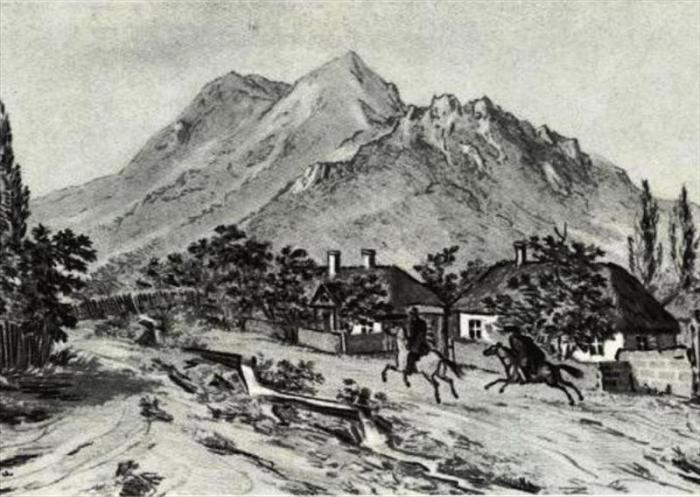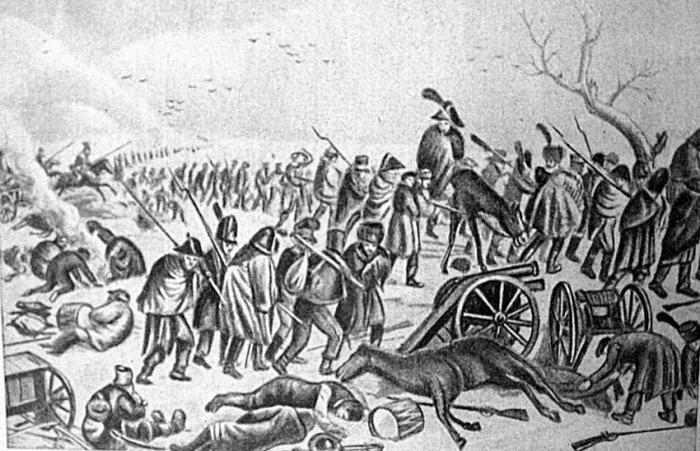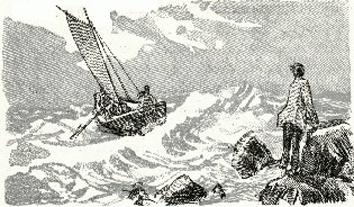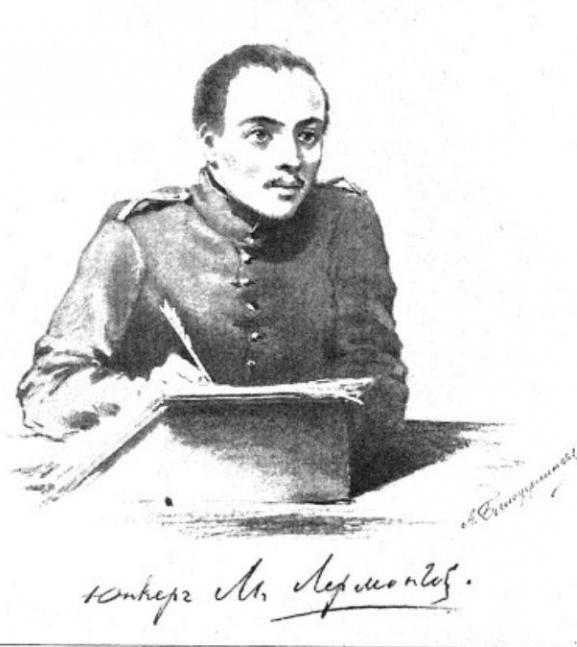Homeland in the work of Lermontov. The theme of the homeland in Lermontov's lyrics

"I love my homeland, but with strange love!"
M. Yu. Lermontov
The image of the motherland in the work of Lermontov is one of the key. However, the relationship of the poet to Russia is ambiguous.
Thus, Mikhail Yurievich idealizes his pasthomeland, but completely dissatisfied with the current state of affairs in it. The theme of the homeland in the lyrics of Lermontov acquires tragic notes connected with the impossibility, even by the efforts of the best people, to correct the situation. At the same time, many praises of Russia's exploits and accomplishments can be found on the pages of his works, but all of them are related to the past of the country.

Strange and painful love for the homeland
Homeland in the work of Lermontov is presented asalready said, is very ambiguous. The poet was not inclined to ostentatious patriotism and analyzed the surrounding reality. And much of what he saw, he did not like, it seemed wrong.
Lermontov actively opposed the official point of view, which said that today's Russia is almost the ideal of the state. The writer saw in his homeland another - this is a country of slaves and gentlemen.
But at the same time, Lermontov loves his homeland: "I love my homeland, but with strange love! Her reason will not win. " This feeling is irrational, inexplicable and causes the poet new torment.
Picture of native nature
Bright juicy paints draws native landscapesLermontov. Nature and home are closely intertwined in the poet's mind. Despite the fact that Lermontov is considered a recognized singer of Caucasian beauty, in his work there are many appeals to the native nature.
Homeland in Lermontov's poetry is often associated withchildhood memories. Thus, in the poem "How often surrounded by a colorful crowd ..." the lyrical hero, feeling his estrangement in a bright masquerade world, returns to his memories in those days when he lived as a child in the estate. Before his inner eyes rise: a house, a garden, a pond, a village, fields and fogs over them, alleys, rustles of leaves underfoot. The native nature appears as a place where the hero can hide from the hustle and bustle of the human world.

Correlation of the images of the Motherland and nature
Homeland in the work of Lermontov appears asA place where you can find protection and peace. However, this image is directly related to the landscape sketches. Only when images of lilies of the valley, endless fields, gardens arise in the poet's consciousness, loneliness recedes, blissfulness and peace come.
The image of nature gives the ability to conquerman Lermontov. The theme of the homeland is deprived in such poems of any social or political orientation. The poet sees the beauty and harmony of nature, and consequently, his homeland. And this beauty and harmony will remain unchanged, unlike the ever-changing state power.
In nature, Lermontov sees the manifestation of God. In its expediency, harmony, the laws of the device.
The theme of the homeland in Lermontov's lyrics is closely related toimages of native nature. At the same time, the poet does not hesitate about his love of the fatherland. He unequivocally makes it clear that there is nothing more beautiful and closer for him.

Nature and society
Homeland in the work of Lermontov includes both the image of nature, and the image of society, the surrounding poet. At the same time they are contrasted and contrasted with each other.
So, society is endowed with disharmonious features. There reigns lie, anger, injustice and hypocrisy. Find happiness here here, peace and tranquility is impossible. For Lermontov, this is a hostile and dangerous world.
In contrast to society, nature appears. It gives peace, dulls heartaches. However, peace is given only for that brief moment, when the lyrical hero is immersed in nature and removed from society. But, one way or another, he has to return - and the suffering begins again.
How did Lermontov treat feudal Russia
The theme of the homeland is closely related to the problemserfdom and autocratic power. Lyrical hero Lermontov is keenly experiencing the prevailing social injustice in the country. He sees people chained in chains and imprisoned. However, even suffering from the surrounding reality, he is not able to overcome his love for the fatherland. Here the theme of the homeland in Lermontov's lyrics takes the form of torment and suffering, which are closely intertwined with the motive of love for the fatherland.
Thus, the fatherland appears before the lyrical hero as a place of death and birth, a country of close people, as well as evil liars and traitors.
The poem "Motherland"
He often turned to the image of the homeland of Lermontov. "Motherland" is a poem in which this image becomes the main one. Moreover, this is a poetic declaration of love.
Describing the manifestations of the fatherland, the lyrical heroadmits her love, admits love and Lermontov himself. "Homeland" - a poem in which there is a comprehension of what is dear to the hero of Russia. He lists its merits and demerits, drawing a majestic and impregnable image.
In the poem Lermontov describes three landscapes,replacing each other. This steppe, forest and river are typical images of Russian folklore. The steppe enchants with its immensity and freedom. The forest appears powerful, powerful, its image gives the native nature heroic traits. And closes the landscape series description of a deep, calm and majestic river. These sketches of native nature reflect the greatness, breadth and scope of Russia.
However, the image of the motherland includes not onlynatural descriptions, but also images of people who live here. The poet refers to the image of a Russian person who remains natural, harmonious in his coexistence with nature.
Colorfully and brightly depicts the scene of folk fun on the holiday. The poet is infinitely pleased with the reigning unrestrained gaiety in which the freedom of the Russian people is manifested.
Lermontov depicts different facets of the image of the homeland, which he admires and sincerely loves them. Any manifestation of the Motherland finds a response in the soul of the poet.
Description of the heroic past of Russia

Homeland in the work of Lermontov is closely related toconcept of a national character. So, within the framework of this concept, the poet in the "Song about Tsar Ivan Vasilyevich, the young oprichnik and the striking merchant Kalashnikov" paints an image of Kalashnikov. The merchant is endowed with features of a hero, he appears as an honest, strong spirit, brave, able to stand for a just cause and truth to the end. Creating similar images, Lermontov romanticizes the characters of the past and extols them to the podium of courage and honor.
The poem "Borodino"
The poem was written in honor of the celebration of the anniversary of the Battle of Borodino. The poem is constructed as a dialogue of the representative of the generation of 1812 with the generation of the writer.
The story is led by a soldier who looks at thewar of the people. Frequent in the poem of the opposition of the previous generation with the current one: "Yes, there were people in our time Not that the present tribe: Bogatyrs - not you!" Modern Lermontov youth appears inactive, incapable of heroism and courage. In this case, the last generation of the writer depicts not just as a popular mass, but as united by the same desire of strong personalities.
The strength and beauty of the national spirit

The poem reflects the confrontation"Civilization", which represent the French, and "nature", which embodies the Russian people. So, Russians prefer open battle and strength, skill and agility, neglect French cunning and resourcefulness.
The peculiarity of the national spirit is manifested in the fact that the attitude towards people is determined by personal qualities, and not by the wealth of the uniform and belonging to a particular estate.
Such is the ideal homeland in Lermontov's understanding, which he loves, represents and depicts, resorting to romantic idealization.
The main motifs in the poet's lyrics related to the theme of the Motherland
Relationship of the image of the homeland with the theme of the poet and poetryreflect the early poems of Lermontov. The theme "Homeland" in them is manifested through the sense of kinship of the lyric hero with the people's soul. So, in the poem "No, I'm not Byron, I'm different ..." the hero discovers his kinship with his fatherland through nationality - "with the Russian soul."
The homeland is connected with an unattainable ideal, as, for example, in the poem "Mtsyri". The image of the homeland for the hero merges with images of freedom and will. But the dream is unattainable and leads the hero to death.
Lermontov's works later appearmotives of longing for home. This subject arises due to the fact that the poet himself was torn from his native places, the reason for this - frequent references to the Caucasus. The poet was seriously worried about separation from his fatherland. In the poems of the late period, images of the native land begin to appear as a source of life-giving force. At the same time, detachment from her bears the suffering of death for the writer.
To those who do not have a motherland and who are unableTo suffer from separation from it, the poet experiences only contempt. For example, in the poem "Clouds" the hero clearly stipulates the difference between himself, exiled and suffering, and clouds that do not experience any torment and torment.

Conclusion
All the works that Lermontov created foryears of their creative life, are related to the themes of the motherland and freedom. The poet did not always speak about it directly, but these themes also sounded in those poems where the destinies of generations were portrayed, the reasoning of the poet's destiny was being discussed, the prisoner or meaningless bloodshed was narrated, the expulsion and worthlessness of life was narrated. Through all these works, the theme of the Motherland passed through an invisible line.
If we talk about the place taken by the motherlandin the work of Lermontov briefly, it is unequivocally possible to state that the center-forming. Many of the motifs of the poet's lyrics will somehow be related to the image of the fatherland.
</ p>







